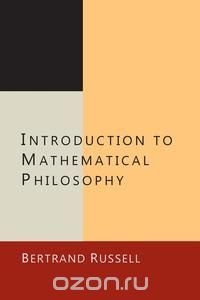2014 Reprint of 1919 Edition. Full facsimile of the original edition, not reproduced with Optical Recognition Software. "Introduction to Mathematical Philosophy" was written in part to express in a less technical way the main ideas of his and Whitehead's "Principia." According to Russell, "Mathematics and logic, historically speaking, have been entirely distinct studies. Mathematics has been connected with science, logic with Greek. But both have developed in modern times: logic has become more mathematical and mathematics has become more logical. The consequence is that it has now become wholly impossible to draw a line between the two; in fact, the two are one. They differ as boy and man: logic is the youth of mathematics and mathematics is the manhood of logic. This view is resented by logicians who, having spent their time in the study of classical texts, are incapable of following a piece of symbolic reasoning, and by mathematicians who have learnt a technique without troubling to inquire into its meaning or justification. Both types are now fortunately growing rarer. So much of modern mathematical work is obviously on the border-line of logic, so much of modern logic is symbolic and formal, that the very close relationship of logic and mathematics has become obvious to every instructed student. The proof of their identity is, of course, a matter of detail: starting with premises which would be universally admitted to belong to logic, and arriving by deduction at results which as obviously belong to mathematics, we find that there is no point at which a sharp line can be drawn, with logic to the left and mathematics to the right. If there are still those who do not admit the identity of logic and mathematics, we may challenge them to indicate at what point, in the successive definitions and deductions of "Principia Mathematica," they consider that logic ends and mathematics begins. It will then be obvious that any answer must be quite arbitrary." Это и многое другое вы найдете в книге Introduction to Mathematical Philosophy (Bertrand III Russell)
Introduction to Mathematical Philosophy Bertrand III Russell
Подробная информация о книге «Introduction to Mathematical Philosophy Bertrand III Russell». Сайт не предоставляет возможности читать онлайн или скачать бесплатно книгу «Introduction to Mathematical Philosophy Bertrand III Russell»
